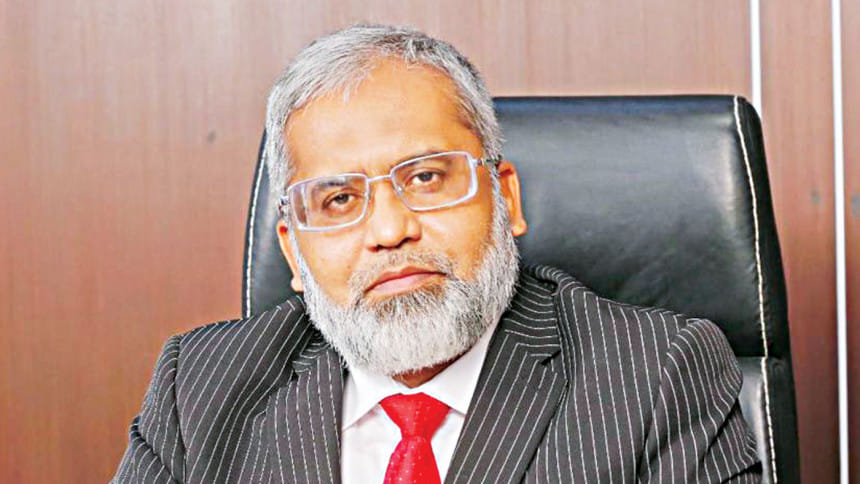Empowering the next generation with financial literacy

Md. Touhidul Alam Khan
Managing Director and CEO, National Bank
The Daily Star (TDS): Why is school banking pivotal for individual development and national advancement?
Md. Touhidul Alam Khan (MTAK): School banking is a vital initiative aimed at instilling financial literacy and saving habits in students from an early age. Implemented in various countries, including Australia and the UK, this programme encourages young individuals to save by allowing them to deposit surplus funds, such as pocket money or gifts. Over time, these small savings can accumulate and be utilised for educational purposes and future financial needs.
This practice not only curtails unnecessary expenditures but also fosters a culture of financial discipline that benefits individuals throughout their lives. The involvement of parents, guardians, and educators is crucial in motivating students to engage in school banking. As the leaders of tomorrow, students can transform their modest savings today into substantial investments for a prosperous future.
TDS: What has been the recent response to school banking initiatives in the country?
MTAK: Launched by Bangladesh Bank in 2010 and enhanced with a comprehensive policy in 2013, School Banking aims to promote saving habits and financial literacy among individuals under 18. Students can open accounts with a minimum deposit of BDT 100, which come with no service charges, favourable interest rates, debit cards, and educational resources. Upon reaching 18, these accounts can be converted into general savings accounts with parental consent.
As of June 2024, the number of School Banking Accounts (SBAs) has risen to 4.41 million, marking a 2.60% increase from the previous quarter, with total deposits amounting to BDT 24,068.96 million—a 9.60% rise.
TDS: How does your bank facilitate school banking?
MTAK: National Bank has been an active participant in all School Banking Conferences organised by the Financial Inclusion Department of Bangladesh Bank. To further the objectives of financial inclusion and literacy among the youth, National Bank successfully conducted School Banking Conferences as a lead bank in 2018 and 2019 at Kishoreganj Branch and Jhalakathi, respectively.
The bank also offers the "NBL Shikkharthi" School Banking Account, which encompasses several noteworthy features:
1. This account is available for Bangladeshi students aged 6 to below 18 and is operated by their legal guardians.
2. Guardians are notified of transactions via SMS alerts.
3. The account offers a 1% higher interest rate compared to general savings accounts.
4. There are no maintenance fees, service charges, or minimum balance requirements, aside from government-imposed charges.
5. The account can receive deposits for scholarships and stipends.
As of 5 December 2024, the current status of the "NBL Shikkharthi" programme includes a total of 16,746 accounts and total deposits amounting to BDT 93,207,524.96.
Understanding the banking preferences of younger consumers is essential for maintaining relevance and competitiveness, particularly in school banking. Generations Z and Alpha, shaped by a digital environment, favour technology-driven banking solutions. To effectively engage this demographic, modern school banking must harness online and mobile platforms, aligning with their digital-first expectations.
The "NBL Shikkharthi" programme plays a vital role in fostering financial literacy and saving habits among the youth, establishing a strong foundation for their future financial independence. By encouraging students to develop sound financial habits early on, we empower the next generation to secure their financial well-being. As Benjamin Franklin wisely stated, "An investment in knowledge always pays the best interest." This initiative embodies that principle, demonstrating that investing in our youth today will yield significant benefits for society tomorrow.

 For all latest news, follow The Daily Star's Google News channel.
For all latest news, follow The Daily Star's Google News channel. 



Comments